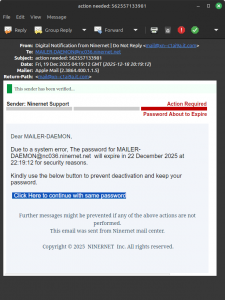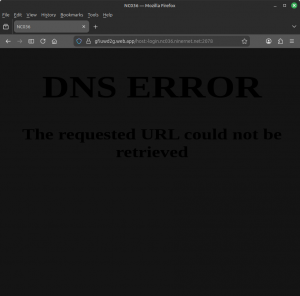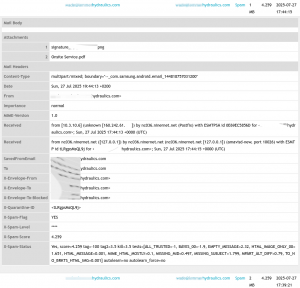I’m sorry.
We are late, yet again, with our December billing. I don’t usually let personal situations get in the way of running NinerNet, but it so happens that I had just moved house (four days previously) on billing day in December (due to the poor availability of moving companies and other constraints), and with all that was involved with moving (which included a rather traumatic change of ISP) I just couldn’t get everything done. I couldn’t even get everything done by the end of December. To make matters worse, I still haven’t completely recovered from an unexplained hard drive loss in June 2025. Sure, I have recovered the most crucial files and use them to invoice you, but there are thousands of files I have collected over the years which consolidate and record previous work and decisions, and not having them (yet!) at my fingertips significantly slows me down.
The invoices issued have a rather fanciful date of 25 December, with an equally fanciful due date of 15 January … just to keep the tax authorities happy. The fact of the matter is, please pay what you can when you can. If you can’t pay before a third-party service (like a domain or SSL certificate) expires, please let us know and we’ll renew those services before they expire.
My invoicing system has also become unwieldy (to say the least) in the last year, especially when it comes to issuing partial refunds, something that has been necessary this month. (See previous comment about having access to past actions.) We’ll see how January goes, but I expect it to go much more smoothly.
Thank-you for your everlasting patience. I have a few days to carry on working on my move (take my underwear out of suitcases), and then it will be time to create January’s invoices.


